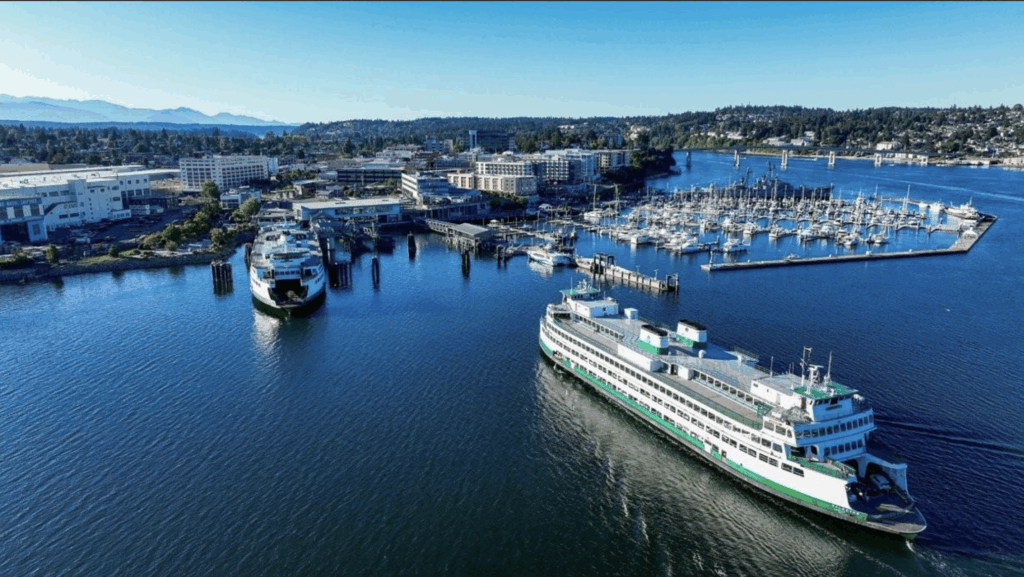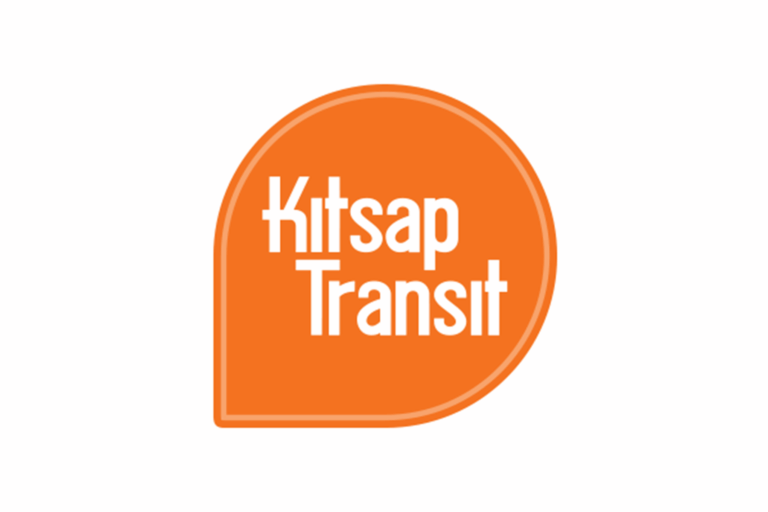
Issue
The Bremerton Ferry Terminal is a vital transportation hub connecting Kitsap County to downtown Seattle. Despite its strategic importance, the terminal suffers from low walk-on passenger usage—only 10.7% for Washington State Ferries of ridership. This underuse reflects broader mobility challenges in the region, particularly for residents displaced by Seattle’s housing affordability crisis who now rely on long, vehicle-dependent commutes.
The lack of efficient, affordable, and sustainable transportation options contributes to increased congestion and environmental degradation. In addition, limited interagency collaboration among transit agencies, utility providers, and local authorities has hindered the effective implementation of eMobility solutions. Addressing these issues requires a coordinated, community-centered approach to expand eMobility access at ferry terminals.
Spark
The concept for an eMobility initiative with the Washington State Ferry division emerged from the Electrified Mobility Hubs: A Blueprint for the Future of Transit Infrastructure developed by the Mobility Innovation Center with King County Metro, Sound Transit, Seattle City Light, with support from the Seattle Department of Transportation. In applying the best practices identified, the intent is to bring stakeholders together to collaborate on a cost-effective strategy—guided by both technical and policy frameworks—to scale these eMobility solutions at ferry terminals for modes of all types, which could help improve walk-on passenger rates.
Overview
The Shore Power project is a collaborative research initiative led by the University of Washington’s Mobility Innovation Center in partnership with WSDOT, Kitsap Transit, and the city of Bremerton. This project aims to develop a replicable, inter-agency planning framework for the Bremerton Ferry Terminal to integrate electrified or “eMobility” solutions to improve accessibility, reduce emissions, and support equitable transportation for all.
With no planned service expansion to accommodate regional growth, increasing walk-on passenger rates will help move more people across the Puget Sound. To do this, ferry riders need options to reach the terminal with the growing range of electrified transportation such as passenger electric vehicles, zero-emission transit buses, and micromobility options like ebikes and scooters.
This project will:
-
- Analyze transportation challenges and understand community needs at the Bremerton Ferry Terminal through workshops.
- Evaluate and design spatial layouts for eMobility infrastructure, including charging stations.
- Model energy demands and cost analyses for electrification.
- Develop a comprehensive, scalable planning framework for ferry terminal electrification that fosters effective interagency collaboration.
- Host a stakeholder workshop to share findings and promote adoption across the state.
By focusing on community engagement, environmental justice, and workforce development, the project supports WSDOT’s strategic goals in resilience, equity, and innovation.
Innovation
The result of this project will provide guidance and a template for the Washington State Ferry Division system to plan and implement electrified mobility hubs with external partners at existing facilities system wide. This will also be useful for utility providers who are essential partners in these conversation efforts.
Impact
The Shore Power project will:
-
- Provide a model for electrification that can be replicated at other ferry terminals across Washington and beyond.
- Help increase walk-on passenger rates at state ferry terminals with improved multimodal and electrification capabilities.
- Improve access to public transportation for underserved communities.
Team
Academic Department
Faculty Leadership
Rachel Berney
Research Center
Urban Design & Planning
Research Areas
- Public space
- Citizenship
- Community development and design
- Neighborhood planning
- Civic engagement, Legible landscapes
- Urban narratives
- Drawing and visualization
- Research methods
- Transnational and comparative work
- Latin America
- Violence and communal life and space
- Public transit and urban design
- Health and wellbeing
Contributors
-
- Bart Treece, Director, Mobility Innovation Center





